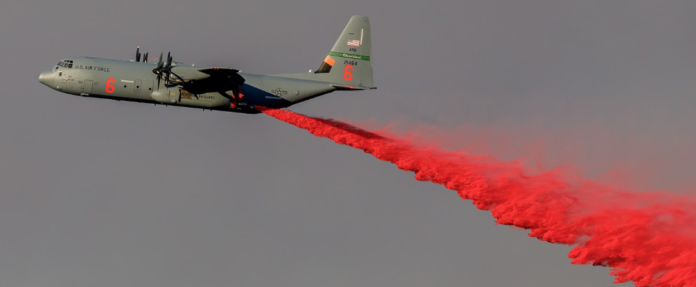Evacuation orders have been issued east of Los Angeles in Riverside County as wildfires engulfed buildings and scorched over 2,000 acres (800 hectares) of land, local authorities reported. California’s firefighting efforts are being stretched thin as firefighters battle 21 blazes of varying sizes, according to Cal Fire, the state’s firefighting agency.
The intensity of their task has been exacerbated by scorching temperatures that swept across the western United States over the weekend, triggering heat warnings affecting more than 30 million people in California, Arizona, Nevada, Oregon, and Washington state.
Governor Gavin Newsom had earlier cautioned about an exceptionally active wildfire season in July, marking a stark contrast to the relative calm of the past two years, which benefited from rainy winters.
A series of heat waves since June has parched California’s vegetation, creating favorable conditions for the rapid spread of fires.
Since January, wildfires have ravaged approximately 207,415 acres in California, significantly surpassing last year’s 10,080 acres and the five-year average of 38,593 acres burned.
The severity of the situation prompted California to dispatch firefighters to neighboring Oregon, where Governor Tina Kotek described the start of the wildfire season as “very aggressive,” with around 20 blazes currently under containment efforts in the state’s northwest.
Among them, the Cow Valley Fire recently attained “megafire” status after sweeping through more than 100,000 acres in rural and sparsely populated areas, with authorities reporting it is now 80 percent contained.
In Utah, a blaze erupted near Salt Lake City on Saturday, prompting evacuation orders for about 40 homes in the northern hills of the city. Residents, like Roger Hobbs, described the terrifying experience of seeing flames in their vicinity, highlighting the fear and urgency amidst the unfolding disaster.
Scientists attribute the increasing frequency of extreme weather events, including wildfires, floods, and heatwaves, to global warming exacerbated by human reliance on fossil fuels.
June was recorded as the hottest on record worldwide, according to the EU’s Copernicus Climate Change Service, marking a tumultuous first half of the year marked by unprecedented and destructive weather patterns.



